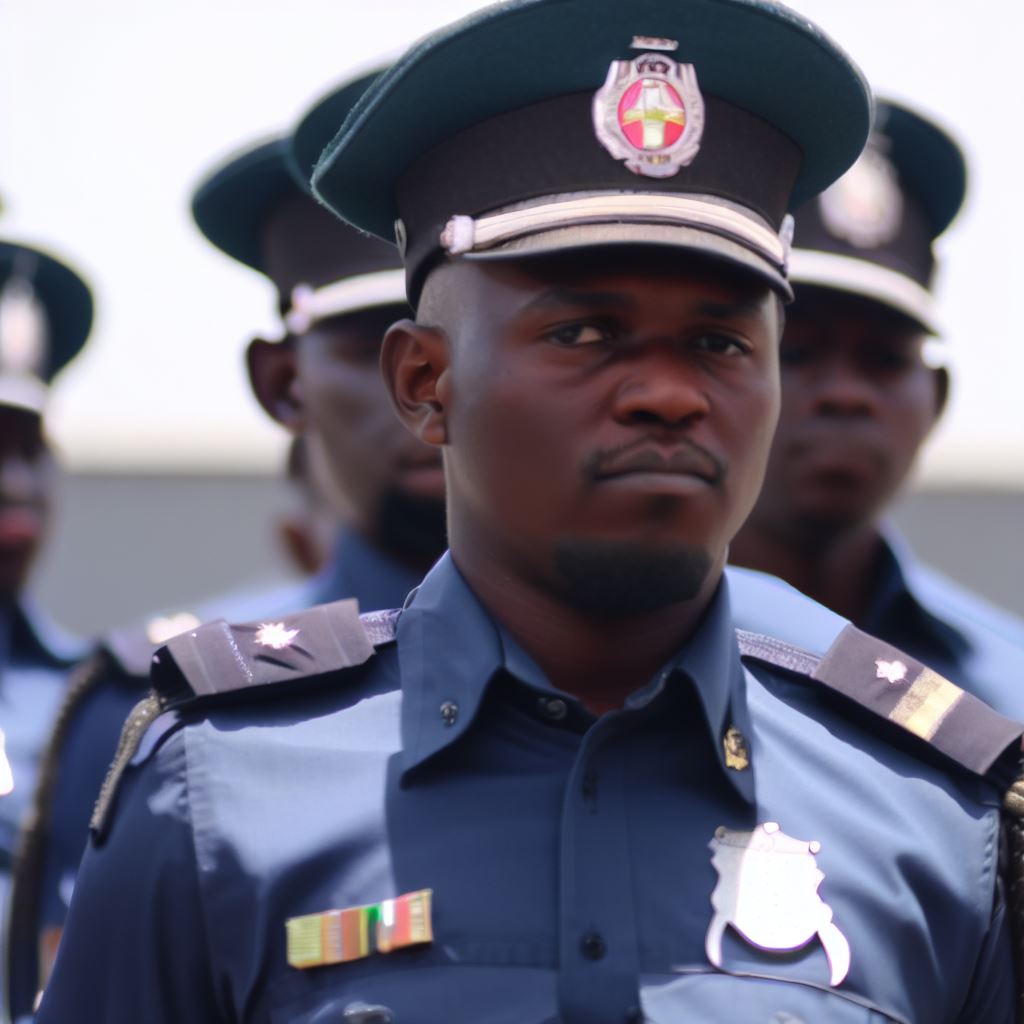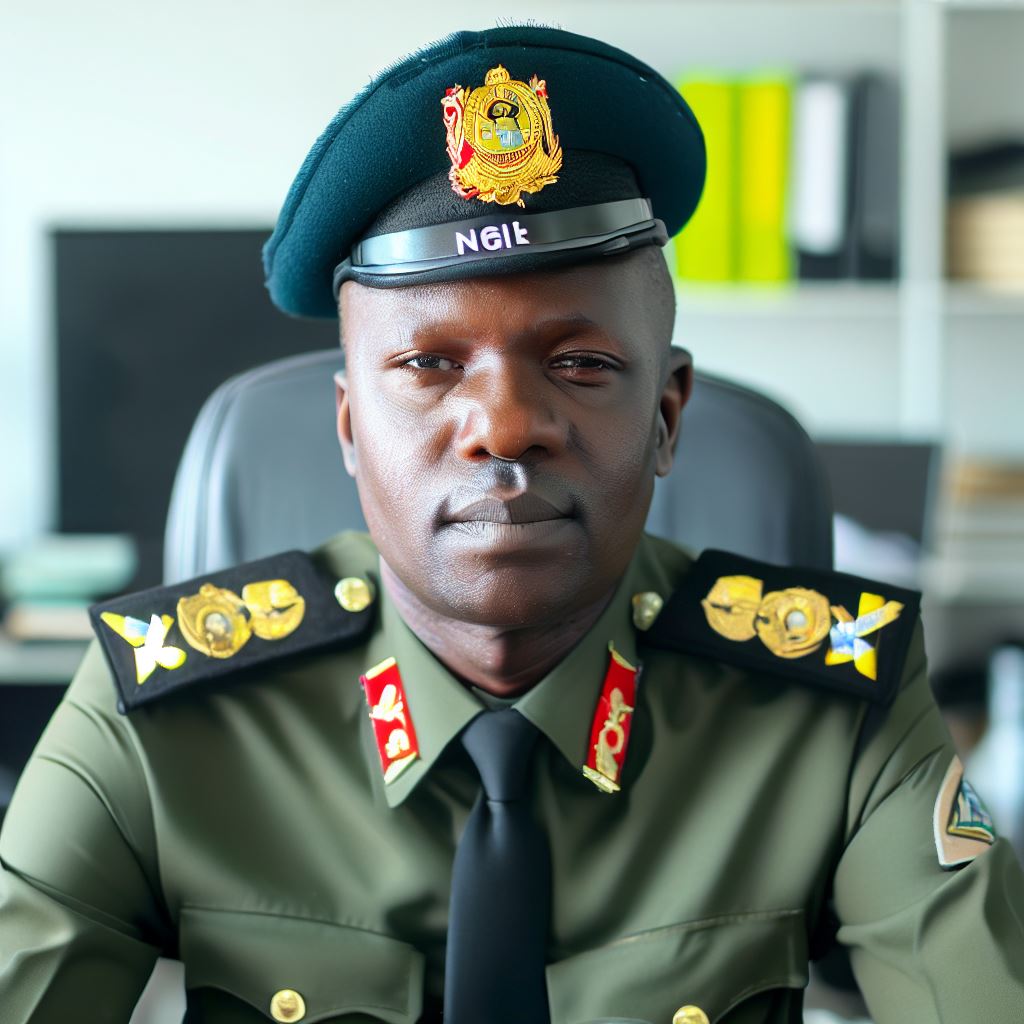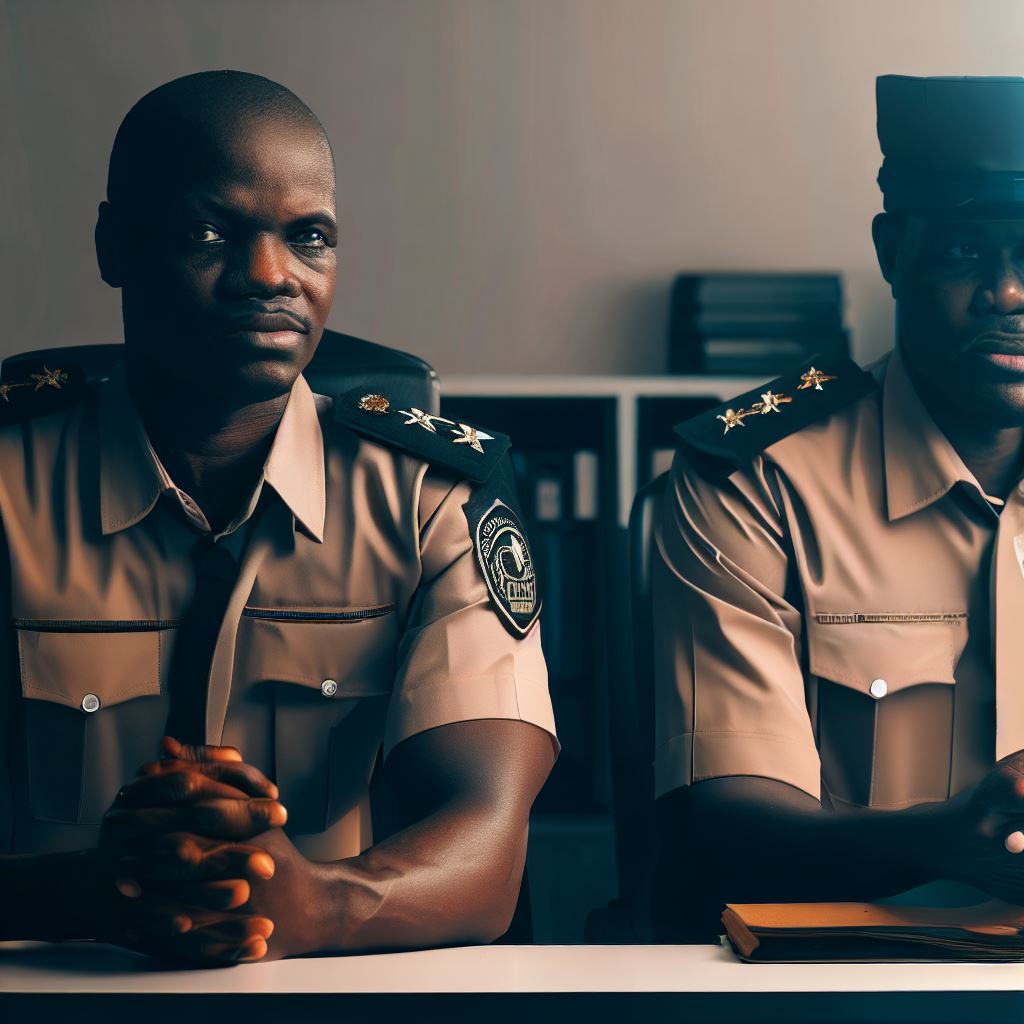Introduction
A. Nigeria’s Special Police Units
Nigeria boasts several special police units, each with unique roles, responsibilities, and specialties.
B. Importance of Understanding These Units
- Enhances Public Awareness
- Encourages Accountability
- Promotes Effective Policing
- Fosters Trust in Law Enforcement
- Facilitates Reform Efforts
In this blog section, we’ll delve into these special units, shedding light on their functions, challenges, and impact on Nigerian society.
History of Nigeria’s Special Police Units
A. Establishment and development of the first special police unit
Nigeria’s first special police unit, known as the Special Anti-Robbery Squad (SARS), was established in the 1980s.
SARS was created to combat the high rates of armed robbery and other violent crimes in the country.
The unit consisted of highly-trained officers who conducted covert operations to apprehend criminals and recover stolen property.
Over time, SARS gained a reputation for its effectiveness in combating crime, but also faced numerous allegations of human rights abuses.
Critics argue that SARS officers often engaged in unlawful arrests, torture, and extrajudicial killings.
Despite the criticism, SARS continued to operate and expand its influence within the Nigerian police force.
B. Expansion and creation of additional special police units
In response to growing concerns about the activities of SARS, the Nigerian government initiated a series of reforms in recent years.
These reforms aimed to address the misconduct and human rights abuses associated with SARS.
As part of the reforms, the government disbanded SARS in October 2020 and announced the creation of the Special Weapons and Tactics (SWAT) team.
SWAT was intended to replace SARS and maintain its capacity to combat violent crimes while addressing the issues that led to its disbandment.
The creation of SWAT was met with mixed reactions from the public, with many expressing skepticism about its effectiveness and concerns about potential abuses.
To further address the concerns, the Nigerian government established the Independent Investigative Panel on Human Rights Violations by SARS and other units of the Nigerian Police Force.
The panel is tasked with investigating allegations of human rights abuses, providing justice to victims, and recommending reforms to prevent future abuses.
In addition to SWAT, other special police units in Nigeria include the Counter-Terrorism Unit (CTU), Police Mobile Force (PMF), and the Special Fraud Unit (SFU).
These units have specific mandates and are trained to handle various aspects of crime, terrorism, and financial fraud.
Overall, the history of Nigeria’s special police units is marked by both their contribution to crime control and the numerous challenges they face in upholding human rights and public trust.
Read: The Impact of Traditional Policing in Nigerian Communities
Overview of Special Anti-Robbery Squad (SARS)
A. Purpose and Objectives of SARS
- SARS was established in 1992 as a specialized unit within the Nigerian Police Force.
- The primary mandate of SARS is to tackle armed robbery, kidnapping, and other violent crimes.
- SARS operates in plainclothes and conducts covert operations to apprehend criminals.
- The unit has been credited with significant successes in reducing crime rates in Nigeria.
- SARS is equipped with sophisticated weapons and surveillance technology to combat organized crime.
- The objectives of SARS are to maintain law and order, protect lives and property, and promote safety.
B. Controversies and Allegations against SARS
- Over the years, SARS has faced numerous accusations of human rights abuses and extrajudicial killings.
- There have been reports of SARS officers engaging in extortion, torture, and arbitrary arrests.
- Citizens, particularly the youth, have expressed fear and mistrust towards SARS due to their actions.
- Social media platforms have been instrumental in exposing the alleged misconduct of SARS officers.
- Several viral videos and stories have shed light on the brutality and corruption within the unit.
- Public outrage and protests demanding the disbandment of SARS have gained momentum.
C. Calls for Reform and Disbandment of SARS
- Human rights organizations and activists have called for a thorough reform of SARS.
- They argue that stricter regulation, oversight, and accountability mechanisms are necessary.
- Proponents of reform believe that SARS can fulfill its mandate without violating citizens’ rights.
- However, many critics believe that the problems within SARS are systemic and irreparable.
- The hashtag #EndSARS has become a rallying cry on social media platforms and global protests.
- In October 2020, following widespread demonstrations, the Nigerian government disbanded SARS.
- A new Special Weapons and Tactics (SWAT) team was announced as a replacement for SARS.
- Efforts are being made to address the concerns raised by citizens and ensure police accountability.
- The disbandment of SARS reflects the power of collective action and the need for police reform.
In essence, the Special Anti-Robbery Squad (SARS) in Nigeria has been a subject of controversy and allegations for many years.
While SARS initially had the noble objective of combating violent crimes, it became notorious for human rights abuses, extrajudicial killings, and corruption.
The public outcry and protests finally led to the disbandment of SARS in October 2020.
The calls for reform and accountability within the Nigerian Police Force continue, highlighting the importance of addressing systemic issues to build a trustworthy and effective law enforcement agency.
The journey towards police reform in Nigeria is far from over, but the disbandment of SARS represents a significant step towards a more just and accountable system.
Read: Working Conditions of Police Officers in Nigeria: A Study
Special Tactical Squad (STS) and Special Anti-Cultism Squad (SAACS)
A. Roles and Responsibilities of STS and SAACS
- Special Tactical Squad (STS) is a specialized unit of the Nigerian Police Force.
- STS is responsible for handling high-risk operations, counter-terrorism efforts, and emergency situations.
- Their primary role includes conducting covert operations to combat armed robbery, kidnapping, and terrorist activities.
- STS members are highly trained in tactical operations, marksmanship, and hostage rescue techniques.
- They work closely with other tactical units, intelligence agencies, and international partners to maintain national security.
- Special Anti-Cultism Squad (SAACS) is another specialized unit within the Nigerian Police Force.
- SAACS focuses on combating cultism, which is a major issue in many Nigerian universities and communities.
- SAACS conducts investigations, gathers intelligence, and arrests individuals involved in cult activities.
- Their primary responsibility is to maintain law and order, prevent violent clashes between rival cult groups, and ensure the safety of citizens.
- SAACS collaborates with educational institutions, community leaders, and other security agencies to address the root causes of cultism.
B. Instances of Successes and Controversies Involving STS and SAACS
1. Successes
- STS has successfully carried out numerous operations resulting in the arrest of high-profile criminals.
- They have rescued hostages from the clutches of kidnappers and prevented potential terrorist attacks.
- STS actively participated in the successful rescue of the Chibok schoolgirls abducted by Boko Haram.
- SAACS has made significant strides in reducing cult-related violence in various Nigerian universities.
- They have arrested and prosecuted several cult leaders, dismantling their criminal networks.
2. Controversies
- Both STS and SAACS have faced allegations of human rights abuses and excessive use of force.
- There have been instances where innocent civilians were mistakenly targeted or subjected to brutal treatment.
- Lack of proper training and oversight has led to cases of corruption and misconduct among some unit members.
- SAACS has been accused of profiling and unfairly targeting certain groups based on their appearance or association.
- These controversies have raised concerns about the need for improved accountability and transparency within these units.
In fact, the Special Tactical Squad (STS) and Special Anti-Cultism Squad (SAACS) play crucial roles in maintaining law and order in Nigeria.
While the STS focuses on high-risk operations and counter-terrorism efforts, the SAACS combats the issue of cultism.
Both units have achieved successes in apprehending criminals and reducing violence.
However, controversies surrounding their actions highlight the importance of addressing human rights concerns and ensuring accountability within these specialized police units.
Read: Police Accountability and Human Rights in Nigeria

Zonal Intervention Squad (ZIS) and Anti-Kidnapping Squad (AKS)
Listed below are the functions and jurisdictions of ZIS and AKS, as well as some notable achievements and challenges they have faced.
A. Functions and jurisdictions of ZIS and AKS
- The Zonal Intervention Squad (ZIS) is a specialized unit within the Nigerian Police Force.
- ZIS is designed to handle various forms of criminal activities and threats within specific zones.
- The unit operates under the direction of the Assistant Inspector-General (AIG) in charge of the zone.
- ZIS focuses on combating crimes such as armed robbery, cultism, and insurgency within their respective zones.
- The Anti-Kidnapping Squad (AKS) is another specialized unit within the Nigerian Police Force.
- AKS is responsible for combating and preventing cases of kidnapping across the country.
- The squad conducts investigations, gathers intelligence, and carries out targeted operations to rescue victims and apprehend kidnappers.
- Both ZIS and AKS work closely with other units and agencies to ensure effective law enforcement and crime prevention.
- ZIS and AKS have the authority to make arrests, conduct searches, and gather evidence as part of their operations.
B. Notable achievements and challenges faced by ZIS and AKS
- ZIS has recorded significant achievements in reducing armed robbery and other criminal activities in their respective zones.
- Through their intelligence-led operations, ZIS has dismantled several cultist groups in different parts of Nigeria.
- AKS has successfully rescued numerous kidnap victims and apprehended the perpetrators involved in these crimes.
- Both units have contributed to the overall reduction of criminal activities and instilling public confidence in the security apparatus.
- However, ZIS and AKS face several challenges in effectively carrying out their duties.
- The scarcity of resources, including modern equipment and technology, hampers their operational efficiency.
- There is a need for continuous training and capacity building to enhance the skills of officers in both units.
- Corruption and lack of professionalism within the police force sometimes hinder the success of ZIS and AKS.
- Public trust and cooperation are crucial in the fight against crime, and building strong relationships with communities is an ongoing challenge.
- Both units must also navigate complex legal frameworks and ensure respect for human rights during their operations.
In short, Zonal Intervention Squad (ZIS) and Anti-Kidnapping Squad (AKS) play vital roles in maintaining law and order in Nigeria.
Through their specialized functions and jurisdictions, they have been able to combat various forms of criminal activities.
While they have achieved significant successes, they also face various challenges that need to be addressed for their effectiveness and efficiency.
With adequate resources, continuous training, and improved community relations, ZIS and AKS can further contribute to fighting crime and ensuring the safety of Nigerian citizens.
Read: Becoming a Police Officer in Nigeria: Qualifications Needed
Monitoring and Accountability of Nigeria’s Special Police Units
A. Existing mechanisms for oversight and accountability
- The Police Service Commission (PSC) is responsible for overseeing the conduct of police officers in Nigeria.
- It has the power to investigate complaints against the police and take appropriate disciplinary action.
- The Independent Corrupt Practices and Other Related Offences Commission (ICPC) also plays a role in monitoring police units.
- ICPC investigates cases of corruption and abuse of power within the police force.
- There is also the National Human Rights Commission (NHRC) that monitors human rights violations by the police.
- NHRC receives complaints, conducts investigations, and recommends appropriate actions against the perpetrators.
- Civil Society Organizations (CSOs) actively engage in monitoring police units and advocating for accountability.
- CSOs conduct research, document cases of abuse, and work towards policy reforms for better oversight.
B. Effectiveness and limitations of these mechanisms
While existing mechanisms for oversight and accountability are in place, there are significant limitations in their effectiveness.
The Police Service Commission, as the primary oversight body, has the authority to address misconduct, but its actions often fall short in delivering justice.
Officers found guilty of abuse or corruption may receive lenient punishments or escape accountability altogether.
The Independent Corrupt Practices and Other Related Offences Commission plays a crucial role in investigating cases of police corruption.
However, its limited resources and power hinder its ability to tackle the deep-rooted systemic issues within the police force adequately.
The rate of prosecutions and convictions remains low, contributing to a culture of impunity.
The National Human Rights Commission has contributed to some improvements in police behavior through its investigations and recommendations.
However, the implementation of these recommendations is often lacking, resulting in a lack of genuine accountability.
The commission’s efforts need stronger support and enforcement to achieve meaningful change.
Civil Society Organizations play a vital role in monitoring police units and advocating for accountability.
They conduct research, document incidents of abuse, and work towards policy reforms to improve oversight.
However, these organizations face challenges, including limited resources and reliance on external support, which can hinder their effectiveness in demanding accountability.
In general, while Nigeria has mechanisms in place to monitor and hold accountable its special police units, these mechanisms need significant improvements.
Swift and impartial actions against officers found guilty of misconduct, increased resources and power for oversight bodies, and better implementation of recommendations are necessary to ensure effective monitoring and accountability of Nigeria’s special police units.
Delve into the Subject: Nigeria’s Military: Service Branches Explained
Recent Reforms and Future Outlook
A. Efforts taken by the Nigerian government to address concerns
The Nigerian government has recognized the need for reform and has taken several measures.
One of the crucial steps was the disbandment of the notorious Special Anti-Robbery Squad (SARS) in October 2020.
Following widespread protests against police brutality, President Muhammadu Buhari promised sweeping reforms.
A Judicial Panel of Inquiry was established to investigate cases of human rights abuses by the disbanded SARS and other units.
The government also pledged to hold officers accountable for their actions and compensate victims of police brutality.
Efforts are being made to improve training, welfare, and professionalism within the special police units.
The government has shown commitment by introducing reforms, but the implementation and sustainability remain key challenges.
B. The impact of recent reforms on the performance and reputation of these units
The disbandment of SARS signaled a significant shift in public opinion and brought attention to police misconduct.
However, reports of continued abuses by other units indicate that more comprehensive reforms are needed.
Rebuilding public trust and gaining international confidence will be crucial for the special police units’ reputation.
The performance of these units will be assessed based on their adherence to human rights standards and the rule of law.
Transparency and accountability in their operations will play a vital role in rebuilding public confidence.
Proper training, increased oversight, and involvement of civil society in monitoring can contribute to improved performance.
C. Potential challenges and opportunities for Nigeria’s special police units moving forward
The deep-rooted culture of impunity poses a significant challenge to effective reforms within the police force.
Corruption and lack of proper oversight continue to undermine the efforts to professionalize these units.
Political interference in policing can hinder the independence and effectiveness of the special units.
There is an opportunity to establish a robust system of internal accountability and external oversight mechanisms.
Collaboration with international partners can provide technical assistance and support to enhance capacity building.
Investing in technology, such as body cameras, can help ensure transparency and provide evidence in case of misconduct.
Building strong partnerships with civil society organizations can foster trust and promote community-oriented policing.
In a nutshell, Nigeria’s special police units have undergone recent reforms driven by public outcry and government recognition of the need for change.
Efforts have been made to address concerns, but the implementation and sustainability of reforms remain key challenges.
Assessing the impact of these reforms on performance and reputation is crucial, as is identifying potential challenges and opportunities moving forward.
Building trust, ensuring transparency, and strengthening accountability mechanisms will be essential in transforming these units into professional, respected law enforcement agencies that serve and protect the Nigerian people.
Conclusion
A. Recap of key points discussed
- Nigeria’s special police units play a vital role in maintaining law and order.
- The Special Anti-Robbery Squad (SARS) has faced criticism for human rights abuses.
- Efforts have been made to reform SARS, but more needs to be done.
- Other special units like the Counter-Terrorism Unit (CTU) and Special Fraud Unit (SFU) are also important.
- The effectiveness of these units depends on proper training, resources, and oversight.
B. Final thoughts on the importance of effective special police units in Nigeria
Having well-trained and accountable special police units is crucial for maintaining a safe and secure society.
Public trust in these units is essential to ensure cooperation and support from the community.
Efforts should be made to address any shortcomings and enhance the professionalism of these units.
Only by doing so can Nigeria effectively combat crime, protect its citizens, and uphold the rule of law.




